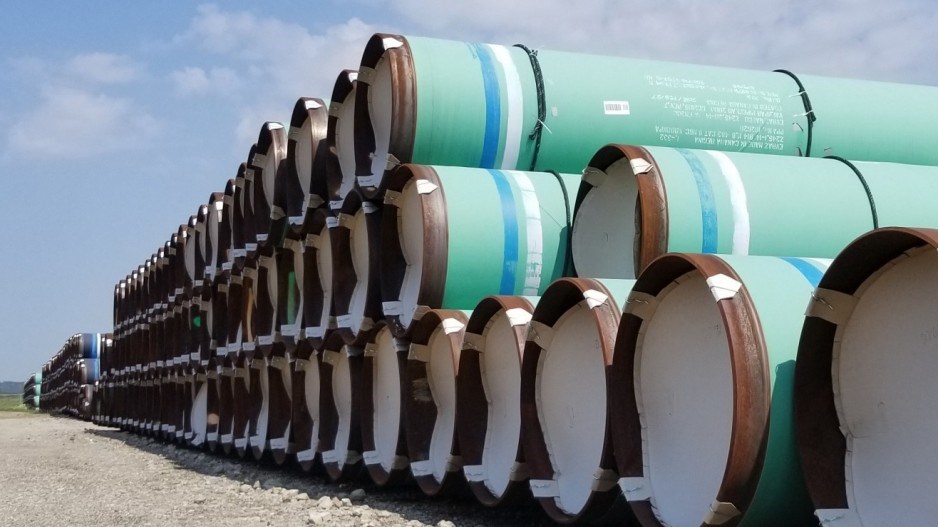The Supreme Court of Canada has refused to hear an appeal of the federal government's approval of the $12.6 billion Trans Mountain pipeline expansion, which is already under construction.
The Tsleil-Waututh and Squamish First Nations and Coldwater Indian Band had appealed to the Supreme Court of Canada to hear an appeal of an earlier Federal Court of Appeal ruling, which had dismissed an appeal of the project's approval. First Nations argued that proper consultations had not occurred.
On July 2, the Supreme Court dismissed that final bid, refusing to hear the appeal and awarding costs to the defendants – Trans Mountain Corp. and the Attorney General of Canada.
Today's ruling means First Nations have exhausted all legal avenues to halt the project on the basis of inadequate consultation, although that doesn't mean the First Nations involved have abandoned all hope of some other legal challenge.
"Although today’s decision marks the end of the road for this legal challenge, First Nations have vowed to explore all legal options to protect their rights, land, water and climate," the Tsleil-Waututh Nation Sacred Trust initiative said in a news release.
“We’re not deterred and are exploring all legal options," said Tsleil-Waututh Chief Leah George-Wilson. "What I can tell you today is that this not the end of the story."
Opponents of the pipeline twinning project, which would add a second line parallel to the 60-year-old pipeline running from Edmonton to Burnaby, were emboldened in August 2018, when the Federal Appeal Court quashed a federal Order in Council that green-lit the project.
The court found the federal government's approval of the project deficient on two points, and sent the federal government and National Energy Board (NEB) back to the drawing board and negotiating table.
The court found that the NEB had failed to fully consider the impacts of increased oil tanker traffic on the marine environment, notably on Southern Resident Killer Whales. The NEB was forced to revisit that question.
The court had also ruled that the latter stages of consultations with First Nations had not been adequate. The project was halted, with a near year-long delay in the construction start adding hundreds of millions of dollars to the original estimated capital cost.
Over a period of months, the federal government held additional consultations with First Nations and again approved the expansion. First Nations appealed the decision and lost when the Federal Court of Appeal dismissed their appeal in February 2020.
That decision underscored the point that senior governments have a duty to properly consult First Nations, but that that duty has its limits and does not confer upon First Nations veto powers over projects in their traditional claimed territories to which they object.
"While the parties challenging cabinet’s decision are fully entitled to oppose the Project, reconciliation and the duty to consult do not provide them with a veto over projects such as this one," the Federal Court of Appeal wrote in its February decision.
"We are pleased with the Court’s decision to dismiss these applications and uphold the Federal Court of Appeal’s decision," Trans Mountain CEO Ian Anderson said in a news release. "Following the federal government’s second approval of the Trans Mountain expansion project and many years of consultation and regulatory reviews, we are pleased to continue building this nationally important project."
Construction started in earnest on the project earlier this year. Currently, work is underway in a section of pipeline in the Kamloops area and in Burnaby, where the Westridge Marine Terminal is being expanded.




